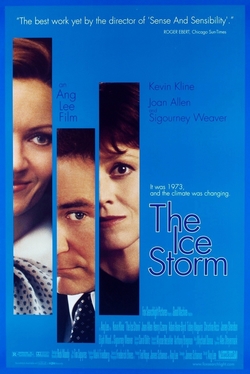(With the Oscars scheduled to be awarded on March 4th, I have decided to review at least one Oscar-nominated film a day. These films could be nominees or they could be winners. They could be from this year’s Oscars or they could be a previous year’s nominee! We’ll see how things play out. Today, I take a look at the 1988 best picture nominee, Working Girl!)
Welcome to the 80s!
Yes, Working Girl is definitely a film of its time. It’s a film that’s obsessed with big things: big dreams, big offices, big money, and big hair. It’s a movie where the heroes talk about hostile takeovers and where everyone’s dream is to eventually to be an executive on Wall Street. You know all of those people who claim that The Big Short is the greatest movie ever made? I can guarantee that the majority of them would totally hate every character in Working Girl. Working Girl is such a film of the past that it even features Alec Baldwin doing something other than bellowing at people. In fact, Baldwin’s actually sexy in Working Girl. It was strange to see him in this film and realize that he was the same actor who currently spends all of his time picking fights on twitter and defending James Toback.
Of course, Alec Baldwin has a relatively small role in Working Girl. He plays Mick Dugan, the type of blue-collar guy who gives his girlfriend lingerie for her birthday (“I just wish you would get me something that I could wear outside,” she says as she tries it on) and who then proceeds to cheat on her while she’s off at work. From the minute we first meet Tess McGill (Melanie Griffith), we know that she deserves better than Mick.
Tess is a professional administrative assistant. She’s just turned 30 but she’s not ready to give up her dreams and settle for a life of fighting off coke-snorting executives and coming home to some guy like Mick. (Speaking of early performances from infamous actors, one of the coke-snorting executives is played by Kevin Spacey.) Tess has got a bachelor’s degree in Business. As she puts it, she has a “mind for business and a bod for sin.”
She’s also got a new boss, an up-and-coming executive named Katharine Parker (Sigourney Weaver). It turns out that Katherine is 29 years old. (“I’ve never worked for someone younger than me before,” Tess says as Katherine gives her a condescending smile.) Katharine encourages Tess to think of her as being a mentor. If Tess has any ideas for investments, she should feel free to bring them to Katharine. Of course, when Tess does so, Katharine claims that her bosses shot the idea down. It’s only after Katharine breaks her leg in a skiing accident and is laid up in Europe that Tess discovers that Katharine has actually been stealing her ideas and not giving her any credit for them.
What is Tess to do? Well, she does what any of us would do. She passes herself off as an executive and presents her idea to Jack Trainer (Harrison Ford) herself. Jack is impressed with the idea but he’s even more impressed with Tess. Of course, complicating things is that Jack was once in a relationship with Katharine and Katharine still thinks that she’s going to eventually marry Jack. And, of course, there’s the fact that Tess is lying about actually being an executive…
Working Girl is a frequently amusing film, elevated by performances of Melanie Griffith and, in the role of Tess’s best friend, Joan Cusack. Add to that, Harrison Ford is remarkable non-grouchy as Jack Trainer and Sigourney Weaver appears to be having the time of her life playing a villain. Even as I laughed at some of the lines, here was a part of me that wished that the film had a bit more bite. At times, Working Girl tries too hard to have it both ways, both satirizing and celebrating Wall Street culture. In the end, the film works best as a piece of wish-fulfillment. It’s a film that says that not only can you win success and Harrison Ford but you can get your bitchy boss fired too.
Despite being a rather slight (if likable) film, Working Girl was nominated for Best Picture of 1988. However, it lost to Rain Man.

